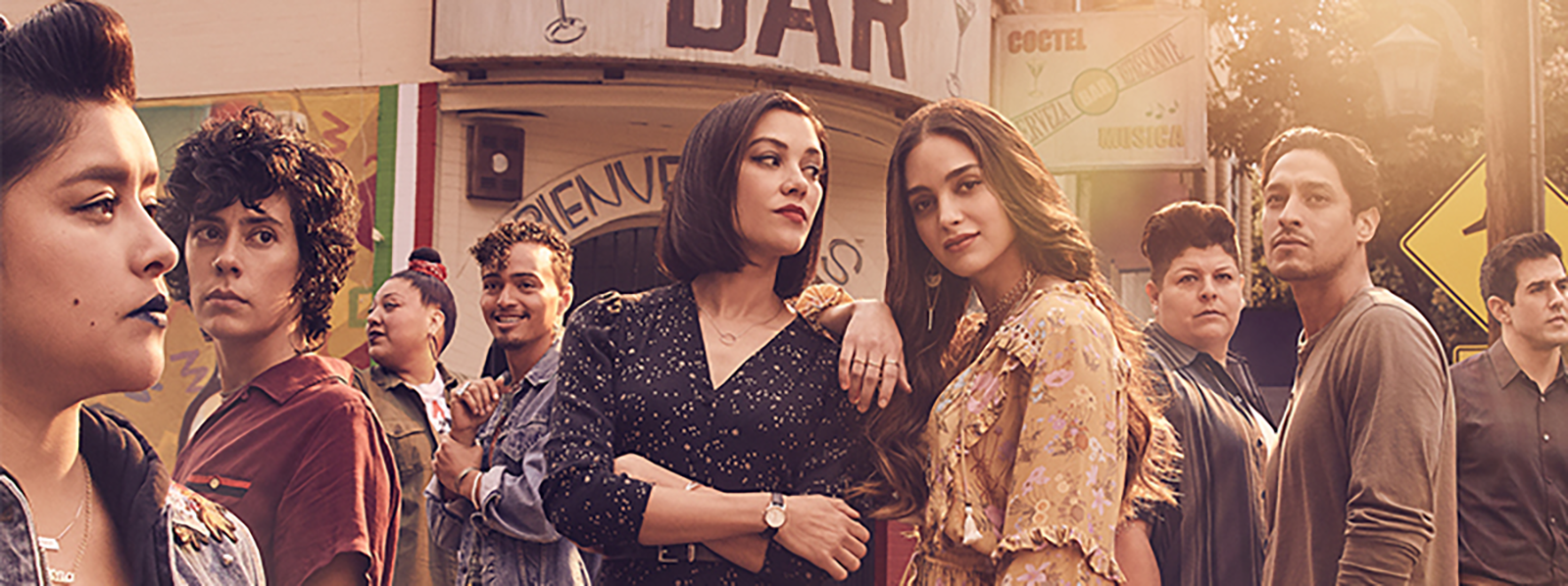Season three of Vida premieres Sunday, April 26 on Starz. Warning: spoilers ahead.
Usually, shows about sex aren’t sexy. Remember HBO’s Tell Me You Love Me, ostensibly dissecting the sex lives of three couples but managing to suck all the sexiness out of it? Or 2004’s Kinsey about the science of sex and how little we really know about it? Or middle school health for that matter? It turns out that analyzing sex can be like analyzing a joke — if you start explaining why it’s funny, it’s just not anymore.
But Tanya Saracho’s Vida manages to have insightful, smart things to say about sex, sexuality, and sexual politics while also being just plain hot. The result is quite possibly the best show on television — and certainly the one I’ll miss the most if no one steps in to make more episodes after Starz finishes running the third season. Make no mistake, the third season is just as good as the first two, finishing with enough of a conclusion to give the characters justice while keeping us wanting more.

But back to sex. The whole show can be read as a treatise on the subject with each character having her own Awakening-esque arc. Let’s start with activist Marisol, in some ways, the woman with the most traditional story. You know the one — girl tries to be “good,” takes care of her family, works hard, doesn’t have sex. But it doesn’t matter. For Mari, you could say the trouble starts when a video of her giving head makes the rounds (one she did not consent to film). As you’ll see in the third season, despite being her father’s nurse and caretaker, she’s left out of the will with the property going solely to her brother Johnny. It’s not right, but it’s a reminder that even women who play by the patriarchal rules lose.
The typical telling of this story would end there, Marisol powerless and betrayed, another victim. But not in Vida. Mari doesn’t just accept her father’s wishes, instead pushing Johnny to be added to the deed. She also pushes herself and her activism, even breaking with Los Vigilantes, her collective action group. Marisol isn’t defined by her “V-card” — it’s perhaps the least interesting thing about her.

On the other end of the spectrum is Lyn — if Mari’s the virgin, Lyn’s the “whore,” the one wearing see-through dresses, the body of a yoga instructor, and a healthy sexual appetite. The image of Johnny eating her out in the premiere is forever etched into my memory. And so is the orgy. And a few other steamy Lyn moments. For, before dedicating herself to the bar, her sexuality was her greatest asset, getting rich men to provide for her. And it worked — she bought fabulous clothes and had amazing experiences. Until it didn’t. Lyn’s journey is away from the sexist ideal of womanhood to something more individual, more self-realized.
In season three, she rejects ex-boyfriend Juniper’s offer at reconciliation and eventually gives up on being Councilman Rudy’s polished partner. She focuses on making the bar the destination for Latinx culture and she’s good at it, booking the right acts and cultivating a certain aesthetic. The transition is subtle and on-going — there’s still plenty to learn but Lyn finds a way to be sex-positive without defining herself by a man or the ability to acquire the male gaze. Just don’t expect her to turn away from sex, romance, or love any time soon. In sex-positive Vida, Lyn’s sexual escapades are just part of finding herself and finding her way. No slut-shaming here.
And outside of patriarchy’s narrative of women’s sexuality is Emma. Her queerness is not defined by boxes or labels but that doesn’t make it idyllic. She struggles to connect, even when a great partner (Nico!) is right in front of her. Her sexual escapades are just (if not more?!?) hot than Lyn’s, whether it’s bath time with Nico, masturbating at her mom’s house, or fucking the contractor. Emma’s sexuality proves you can go your own way, but it won’t be easy.

So often, women’s sexuality is portrayed from the man’s point of view — who’s hot, who’s not, who gets their search for pleasure narrated and who’s goes unnamed. Vida doesn’t just reject the male gaze. It creates a new narrative around desire, one that sees Eddy as desirable as Lyn, Emma’s quest for romantic love as important as Marisol’s fight for her community. That Vida does so with a tantalizing sex scene practically every episode is simply proof that lust doesn’t have to center on the male desire, it too can be feminist.
A show that has this much to say about latinidad, gentrification, class, and colorism would usually be described as “serious” or “important.” It would be for auteurs and Latinx, preferably the limited subsection that is the intersection of those two groups. And Vida is these things but it’s more than that. It’s sexy and smart and for everyone. And I will miss it.

